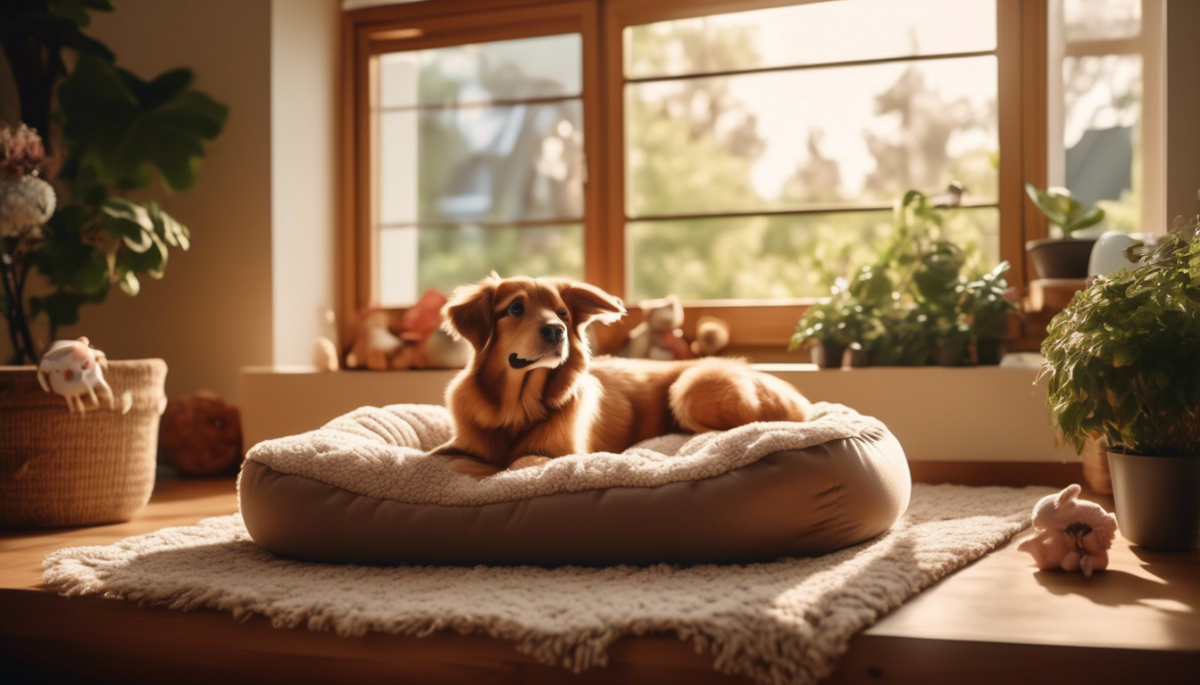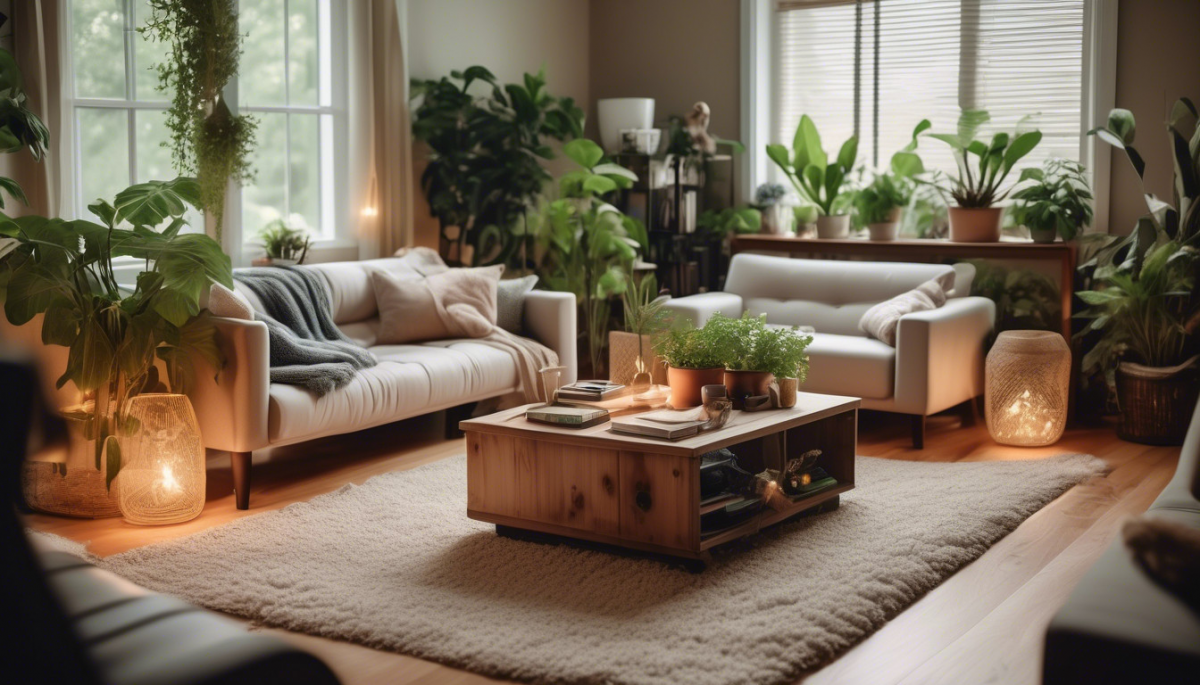
Creating a safe and comfortable environment for pets at home is essential for their well-being and happiness. This involves understanding the specific needs and behaviors of different animal species, as well as taking proactive measures to ensure their safety and comfort.
A pet-friendly home should:
- Provide adequate space
- Offer appropriate shelter
- Ensure access to fresh food and water
- Be free of hazards that could cause harm
Consideration must also be given to the psychological needs of pets, such as providing stimulation and companionship to prevent boredom and anxiety.
Safety measures are critical in protecting pets from potential dangers. These include:
- Securing hazardous materials
- Ensuring proper ventilation
Comfort can be enhanced through:
- The use of soft bedding
- Temperature control
- Creation of designated areas for rest and play
By prioritizing these elements, pet owners can foster an environment that promotes the health, security, and overall quality of life for their animal companions.
Space and Shelter
A well-designed space and adequate shelter are crucial for ensuring pets’ safety and comfort. A thoughtfully arranged environment provides not only physical protection but also fosters a sense of belonging and well-being for pets.
Ensuring sufficient space is vital as it allows animals to:
- Move freely
- Engage in natural behaviors
- Avoid stress
Appropriate shelter offers a secure refuge from adverse weather conditions, enhancing overall safety.
When creating a pet’s environment, consider the specific needs of the animal, tailoring the space to accommodate its:
- Size
- Activity level
- Temperament
For instance:
- Smaller pets may require cozy enclosures
- Larger animals benefit from expansive areas
Attention to temperature regulation, ventilation, and cleanliness further contributes to a safe habitat.
Incorporating elements that support good nutrition within the shelter is also important. This can include:
- Designated feeding areas
By prioritizing space and safety, pet owners cultivate an environment conducive to their pets’ health and happiness.
Nutrition and Hydration
Proper nourishment and adequate hydration are essential components in maintaining a pet’s health and vitality. Providing high-quality nutrition tailored to the specific needs of each pet ensures optimal health and supports their overall well-being.
Selecting a balanced diet includes:
- Necessary proteins
- Fats
- Vitamins
- Minerals
This fosters a robust immune system and promotes longevity.
Access to clean and fresh water is crucial for hydration as it aids in:
- Digestion
- Temperature regulation
- Waste elimination
Creating a designated space for feeding can enhance a pet’s sense of security and comfort, thereby encouraging healthy eating habits. Ensuring that food and water bowls are placed in a quiet, accessible area reduces stress and minimizes the risk of spills and contamination, thus promoting safety.
Regularly cleaning these feeding spaces is vital to prevent bacterial growth and maintain sanitary conditions.
By prioritizing nutrition and hydration within the home environment, pet owners contribute to a secure and nurturing atmosphere that supports their beloved companions.

Hazard Prevention
Proactively identifying and eliminating potential hazards in the home is essential to ensure a safe environment for pets. This involves examining all living spaces for items or situations that could pose risks.
- Electrical cords, small objects, and toxic plants should be secured or removed to maintain a safe space.
- Sharp objects and chemicals must be stored out of reach, preventing accidental harm.
In addition to physical safety, nutritional hazards require attention. Ensuring that food storage areas are secure helps prevent pets from accessing unsuitable or dangerous foods. Proper nutrition contributes to overall wellness and safety, reducing the risk of health issues that compromise well-being.
The layout of living spaces should also be considered to prevent accidents.
- Creating clear pathways, especially in high-traffic areas, helps reduce the likelihood of tripping or injury.
- Evaluating each room for potential hazards supports a harmonious environment where pets can thrive safely.
Adopting these practices fosters a sense of belonging, ensuring pets feel secure and protected in their home.

Psychological Well-being
A pet’s psychological well-being greatly influences its overall health and can be nurtured through:
- Consistent interaction
- Mental stimulation
- A stable routine
Designated Space for Pets
Providing a designated space within the home where pets can retreat ensures a sense of security and comfort. This personal area allows pets to relax and decompress, which is fundamental for maintaining mental stability.
Environmental Enrichment
The environment should be enriched with interactive toys and activities that challenge cognitive abilities. This promotes mental engagement and reduces boredom.
Nutrition
Nutrition plays a crucial role in a pet’s psychological state. A balanced diet tailored to the specific needs of the pet:
- Supports physical health
- Enhances mood and cognitive function
- Contributes to a stable energy level, essential for engaging in playful interactions
Home Safety
Ensuring safety within the home environment further contributes to psychological well-being by:
- Minimizing exposure to loud noises
- Reducing potential hazards
This fosters a serene atmosphere, allowing pets to feel secure and protected, ultimately enhancing their overall sense of belonging.